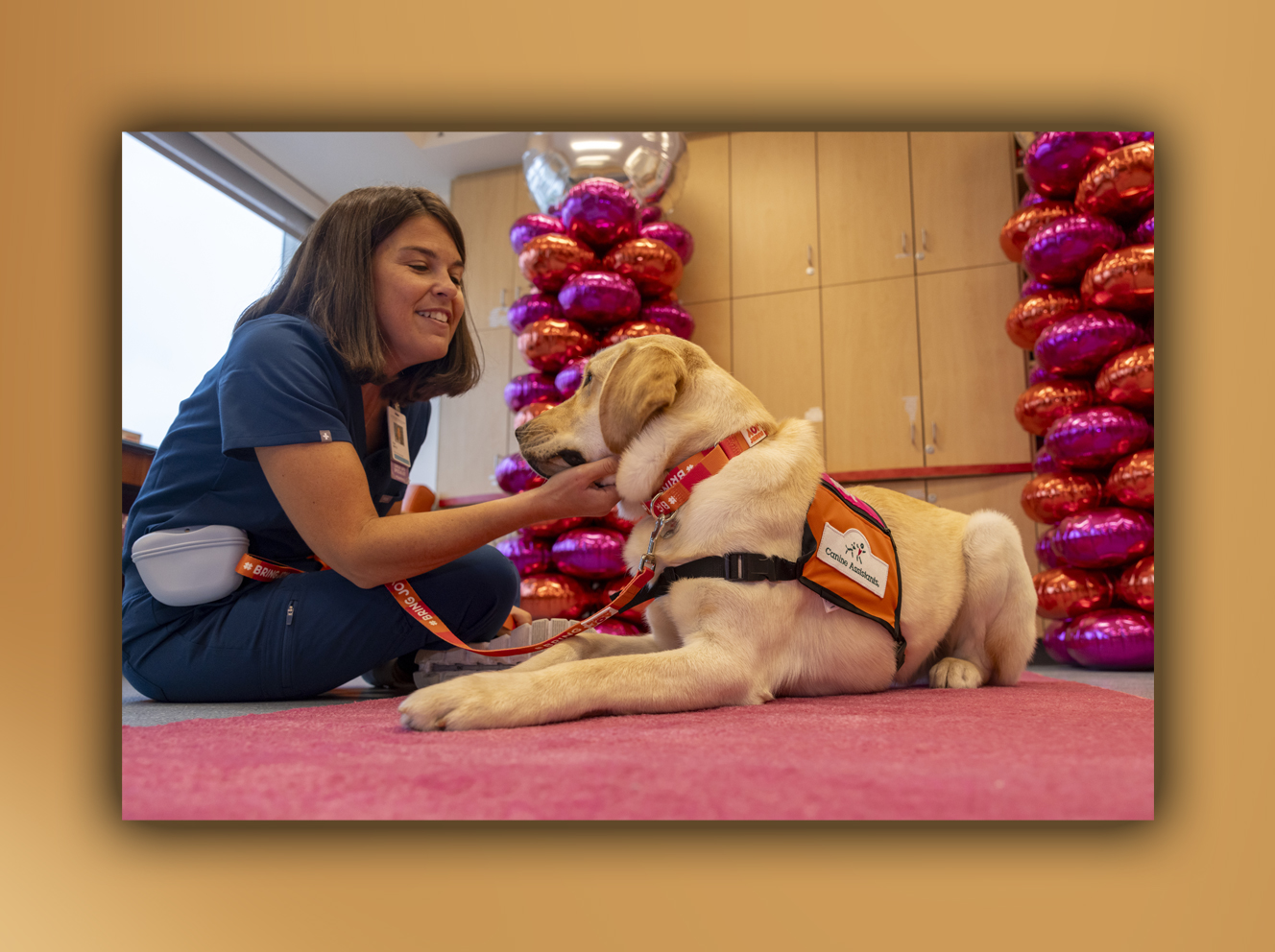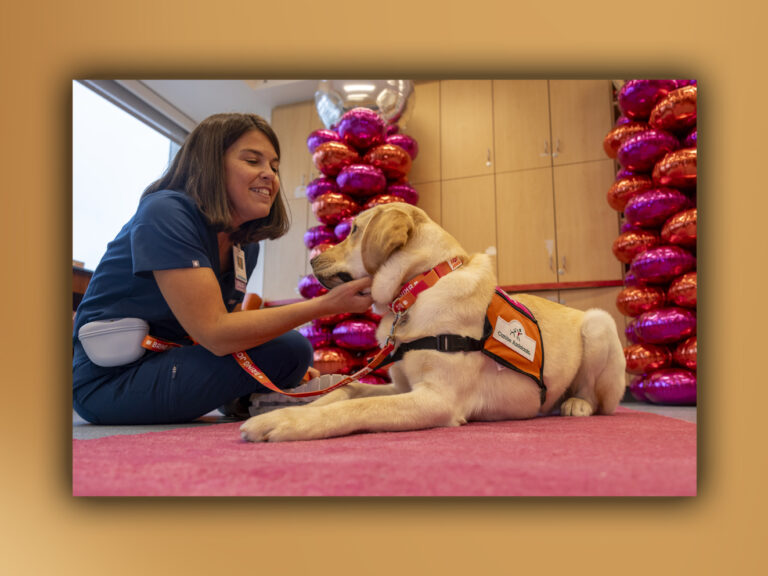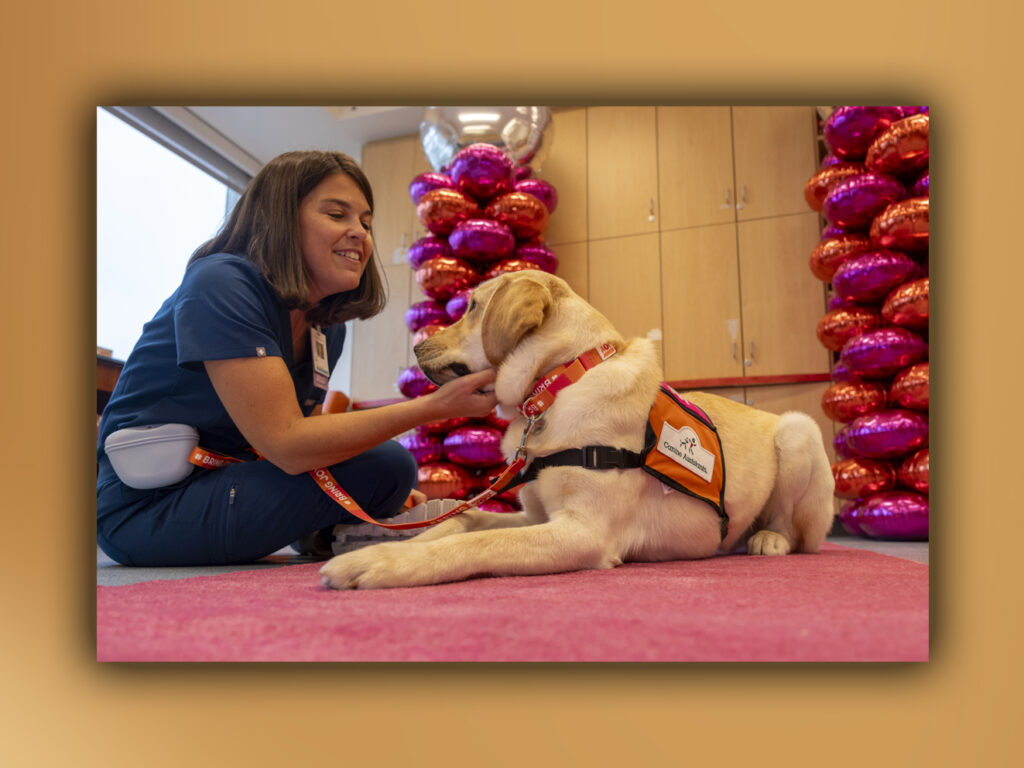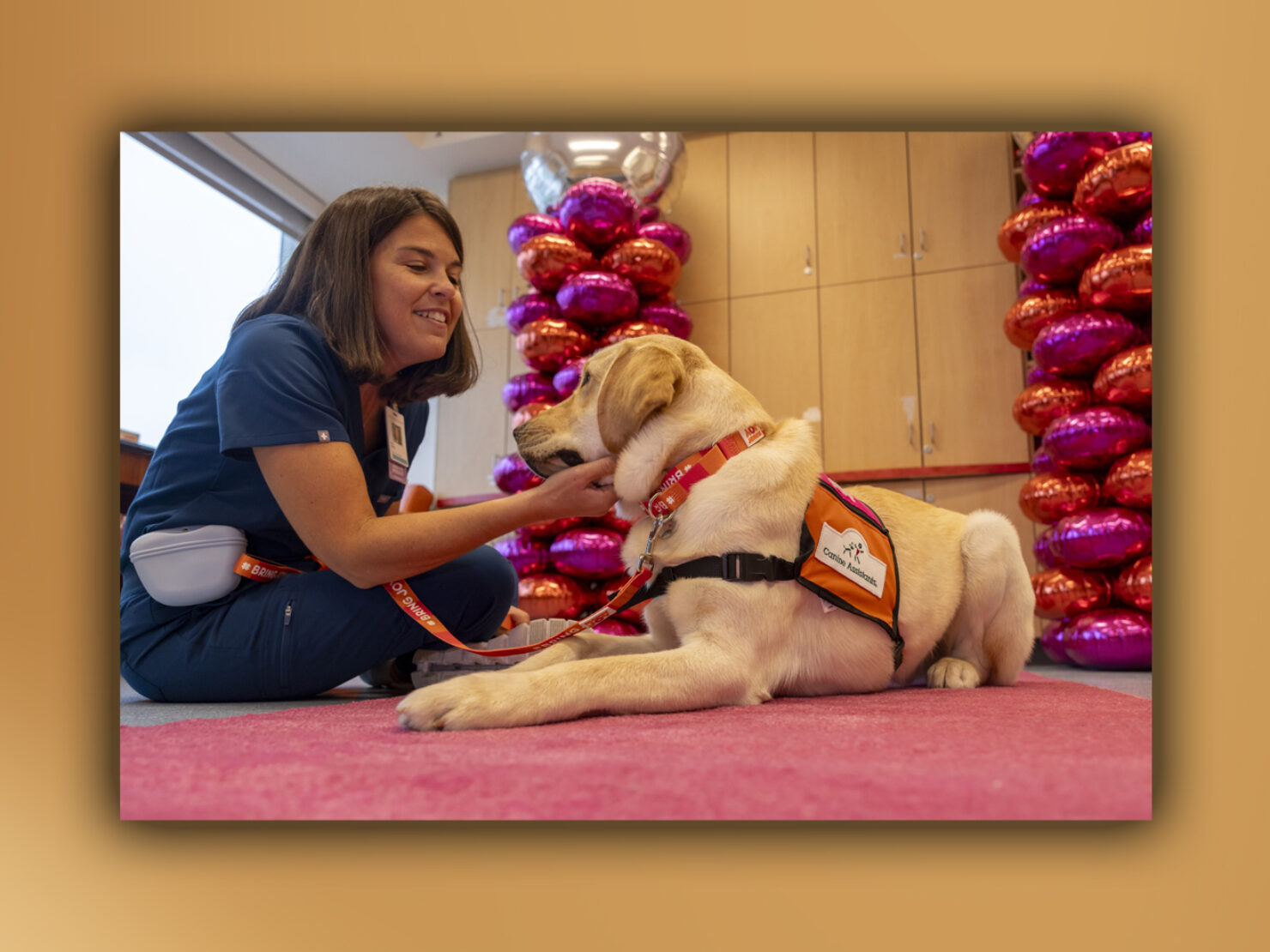Patients at Mass General for Children (MGfC) recently gained a new member of their care team — a Golden Retriever and Labrador mix named Kayce. The furry facility dog was made possible by a grant from Dunkin’s Joy in Childhood Foundation, Inc., through their Dogs for Joy™ program.
“Facility dogs are expertly educated utilizing a bond-based approach and partner with a handler to help serve populations in need,” says Kayce’s primary handler, Child Life Specialist Eva Mintz, MS, CCLS. In Kayce’s case, he not only provides emotional support, but serves as a “tool” to help MGfC staff best care for their patients. And he takes this role seriously, using cues to determine the appropriate demeanor. “When he has his vest on, he knows it’s time to be calm and gentle. Because he feels so safe with us, he’s able to give all of himself to our patients,” Eva says. “But, as soon as the vest is off, he’s a regular, rambunctious puppy.”
“He is truly part of the team and care plan for so many of our patients,” says Kayce’s secondary handler Lori Pugsley, RN, MEd, DNP, NEA-BC, nursing director of inpatient pediatrics. “It’s incredible to witness the difference he makes in the well-being of patients and their families, even if he’s just walking down the hall and giving an anxious mother a moment of reprieve when she bends down to rub his belly.”
Making an Immediate Impact
One of Kayce’s first successful patient interactions was with a child who was struggling to eat following a difficult surgery — a setback that was delaying the child’s discharge. To alleviate the child’s anxiety, Eva had Kayce climb onto the child’s lap and begin snacking on a popsicle. The child soon followed, eating a popsicle of their own. Eva recalls that moment fondly, painting a picture where Kayce brought some much-needed levity to a stressful situation that, ultimately, resulted in the child being sent home safely that very day. Since then, Eva has employed the same technique with other patients, calling it the “Pupsicle Challenge” where she has patients “race” Kayce to see who can finish their popsicle first.
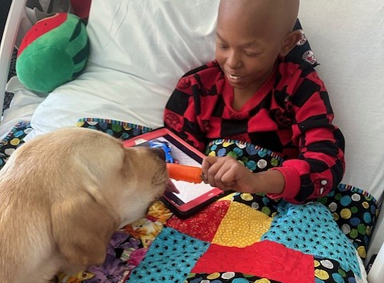
Kayce’s companionship serves patients beyond “pupsicle challenges,” however. He has helped patients who are experiencing pain and anxiety post-operation to take their first steps. He has provided comfort to patients in distress or at the end of their lives when nothing else seems to bring them solace. He has also proven to be an enormous aid to young patients who have autism spectrum disorder, for whom routine procedures can often cause sensory overload.
Eva remembers one patient with autism spectrum disorder, in particular. The child was experiencing a great deal of discomfort during a routine procedure to their head. To help distract the patient from what was going on, Eva began pointing out a freckle on Kayce’s paw. The child immediately began to focus on Kayce’s furry foot, drawing their gaze downward and allowing the clinician to move forward.
“The child was really struggling and really overwhelmed, but once they saw Kayce, they sat still, examining Kayce’s paw and holding his ears in their hands. Because of that, we were able to do what we needed to do without issue,” says Eva. “It was so amazing to see how something as simple as focusing their attention on Kayce’s paw could make the day significantly less stressful for everyone involved.”
Expanding Patient Support
Although Kayce has been with the team for only a couple of months, he has had an immediate impact on those around him — so much so that Lori and Eva have already identified other departments and services that would benefit from a facility dog. “There are many opportunities for facility dogs to be used across the hospital,” says Lori. “But that’s not something we have funds readily available to support.”
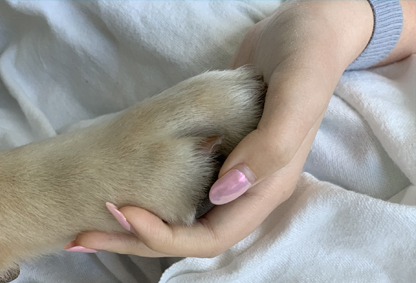
The Joy in Childhood Foundation, Inc., which funded Kayce through a grant program specifically aimed at supporting facility dogs in hospitals, is the non-profit arm of Dunkin’, the popular coffee chain. To date, the Foundation has sponsored approximately 40 dogs to be part of pediatric care teams across the country. “We are so grateful to Dunkin’ for bringing us Kayce,” says Lori. “We hope future philanthropy will help us expand our ability to support patients and staff in this way.”
Lori and Eva plan to gather data illustrating Kayce’s impact on patients’ health outcomes to make the case for additional furry staff members. The team is interested in studying the impact of a facility dog on the wellbeing of palliative care and oncology patients, as well as on patients with nutritional deficiencies.
“To see how even the simplest interaction with Kayce can make an immense difference has been astounding,” says Eva. “We can’t wait to see how else he can help us care for our patients.”
To support Mass General for Children, click here.
